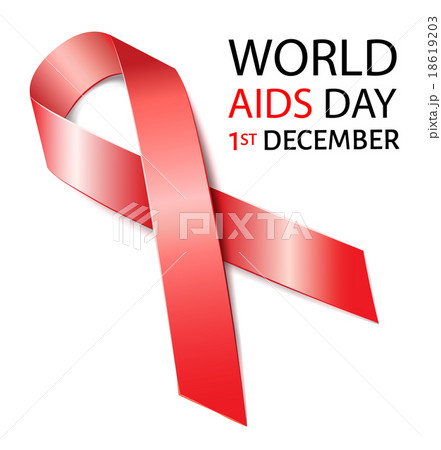You are using an out of date browser. It may not display this or other websites correctly.
You should upgrade or use an alternative browser.
You should upgrade or use an alternative browser.
Guest viewing is limited
- You have a limited number of page views remaining
- 2 guest views remaining
- Register now to remove this limitation
World Aids Day December 1st
- Thread starter Keiji
- Start date
Solong
TAG Member
- Joined
- Jan 18, 2013
- Messages
- 2,502
- Reaction score
- 2,199
They now have quick HIV home tests.
http://www.oraquick.com/Home
http://www.oraquick.com/where-to-buy
http://www.oraquick.com/Home
http://www.oraquick.com/where-to-buy
User#16452
TAG Member
- Joined
- Sep 22, 2015
- Messages
- 1,434
- Reaction score
- 4,082
Solong
TAG Member
- Joined
- Jan 18, 2013
- Messages
- 2,502
- Reaction score
- 2,199
There is also HIV preventative medication for if you suspect you might have had intimate contact with someone HIV positive. You need to see a doctor within 72 hours of exposure:
http://www.avert.org/learn-share/hiv-fact-sheets/emergency-treatment
I don't need such information for me specifically. If you are posting it as general information for everyone, no need to quote me. I hope you know that, or you know now.
And for those people in Japan and Tokyo, who are at high risk or just want to make sure, they have anonymous HIV testing too.
http://www.city.shinjuku.lg.jp/foreign/english/oshirase/teiki/aids.html
Last edited:
Wwanderer
Kids, don't try this at home!
- Joined
- Nov 17, 2010
- Messages
- 7,050
- Reaction score
- 15,788
These useful links should probably be placed in the STD sticky-thread so that they can be easily found by those who are worried.
It is also worth noting in this thread that World AIDS Day is much more relevant/important for/in other parts of the world than in Japan, which has one of the lowest AIDS death rates in the world (see http://www.worldlifeexpectancy.com/cause-of-death/hiv-aids/by-country/, around 40 deaths per year). If AIDS were as rare everywhere as it is in Japan, almost no one would have even heard of it. I'd *guess* that in Japan more people get a fatal respiratory infections from sex partners than get AIDS from one.
-Ww
It is also worth noting in this thread that World AIDS Day is much more relevant/important for/in other parts of the world than in Japan, which has one of the lowest AIDS death rates in the world (see http://www.worldlifeexpectancy.com/cause-of-death/hiv-aids/by-country/, around 40 deaths per year). If AIDS were as rare everywhere as it is in Japan, almost no one would have even heard of it. I'd *guess* that in Japan more people get a fatal respiratory infections from sex partners than get AIDS from one.
-Ww
Last edited:
Solong
TAG Member
- Joined
- Jan 18, 2013
- Messages
- 2,502
- Reaction score
- 2,199
Instead of relying on home tests, it is important to see a doctor straight away for advice if you think there is a chance of you contracting HIV. No test is 100% accurate but I suspect that a home test is less accurate than one preformed by a professional.
There is also HIV preventative medication for if you suspect you might have had intimate contact with someone HIV positive. You need to see a doctor within 72 hours of exposure:
http://www.avert.org/learn-share/hiv-fact-sheets/emergency-treatment
Oraquick has demonstrated to be 99.9% accurate at identifying HIV negative people. That is about as accurate as you can hope to ever get. Many medical centers opt for giving the oral test, as opposed to blood tests, but do recommend a follow up test 90 days later, regards of which method use.
If you read up on it, then you would know that a positive result, oral or blood, means you should double check with a 2nd blood test to verify.
Also the PEP/PrEP Anti-HIV drugs have a few issues:
1) Must be taken within 72 hours of exposure or previously.
2) Must be taken properly as prescribed
3) Debate on how effective. Range from 86% to 100%.
Variation could be about those who didn't take it properly or stopped taking it.
Last edited:
- Joined
- Jun 23, 2011
- Messages
- 13,282
- Reaction score
- 36,277
There is also HIV preventative medication for if you suspect you might have had intimate contact with someone HIV positive. You need to see a doctor within 72 hours of exposure:
http://www.avert.org/learn-share/hiv-fact-sheets/emergency-treatment
It's worth mentioning that this IS available in Japan. Locally it's referred to as bakurogo yobou naifuku (曝露後予防内服).
User#16452
TAG Member
- Joined
- Sep 22, 2015
- Messages
- 1,434
- Reaction score
- 4,082
Solong
TAG Member
- Joined
- Jan 18, 2013
- Messages
- 2,502
- Reaction score
- 2,199
I don't doubt that the test itself is 99.99% accurate, however, the precision is very likely to fall when preformed by someone for the first time, as opposed to a professional.
Please read about the product first, before just simply saying anything to be argumentative or playing tag on what is considered an important issue, to include high risk sex workers.
The product is made for home use and to be used by a non-professional. There are various ways people want to protect themselves, and this is another important option that is now available to the public.
If a person doesn't feel confident about an easy to use product rated at 99.99% effective at determining who is HIV negative, I also recommended a free testing clinic in Tokyo.
User#16452
TAG Member
- Joined
- Sep 22, 2015
- Messages
- 1,434
- Reaction score
- 4,082
I am not trying to be "argumentative", but there is a difference between accuracy and precision.
.
That's very true.
Or in this case it would be more like the difference between sensitivity and specificity.
I love how oraquick's effective marketing by rephrasing high sensitivity (which is pretty much expected in ALL screening tests) as high accuracy in identifying true negatives.
Great screening product but I would still recommend getting advice from a medical professional as HIV does have That stressful window period that affects accuracy that not everyone using a home kit might be aware of.
AIDS were as rare everywhere as it is in Japan, almost no one would have even heard of it. I'd *guess* that in Japan more people get a fatal respiratory infections from sex partners than get AIDS from one.
-Ww
With all due respect ww, although world AIDS day promotes awareness of AIDS, id like to stress the difference between AIDS and hiv. The low death rate caused by AIDS in Japan does not indicate the incidence rate of hiv. people with HIV who live in rich first world countries have the added privilege of haart by which if they take lifelong would probably never get AIDS.
In other words, I'd just like to politely stress that such statistical values should be taken with a grain of salt. It is just as important and relevant to address AIDS/HIV in countries like Japan.



